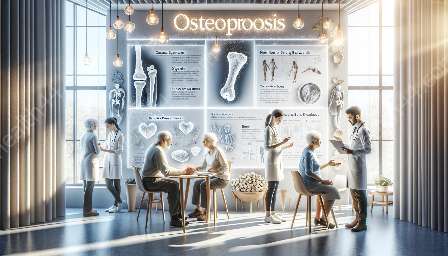Osteoporosis is often thought of as a condition that predominantly affects women, but men are also at risk. This article will explore the importance of bone health in men and delve into the specific considerations and challenges related to osteoporosis in the male population.
The Importance of Bone Health in Men
Bone health is a critical aspect of overall well-being, and this holds true for men as much as for women. Just like women, men are also susceptible to bone-related conditions, and maintaining strong and healthy bones is essential for a good quality of life.
As men age, their bone density gradually declines, making them vulnerable to osteoporosis and an increased risk of fractures. Osteoporosis in men often goes undiagnosed and underreported, leading to serious consequences when fractures occur.
Osteoporosis in Men: Understanding the Risk Factors
There are several risk factors that can contribute to the development of osteoporosis in men. These include:
- Age: As men get older, their risk of developing osteoporosis increases.
- Low testosterone levels: Reduced testosterone can lead to a loss of bone mass.
- Diet and nutrition: Inadequate intake of calcium and vitamin D can weaken bones.
- Medical conditions and medications: Certain health conditions and medications can impact bone health.
It's important for men to be aware of these risk factors and take proactive measures to maintain their bone strength and density.
Signs and Symptoms of Osteoporosis in Men
Osteoporosis often progresses silently without noticeable symptoms until a fracture occurs. However, some men may experience:
- Back pain caused by a fractured or collapsed vertebra
- Loss of height over time
- Posture changes and a stooped posture
- Increased risk of fractures, especially in the hip, spine, and wrist
Understanding these signs and symptoms can prompt men to seek medical attention and undergo bone density testing to assess their risk of osteoporosis.
Prevention and Management of Osteoporosis in Men
Preventing and managing osteoporosis in men involves a multifaceted approach that includes:
- Regular weight-bearing and muscle-strengthening exercises to enhance bone density
- Adequate intake of calcium and vitamin D through a balanced diet and, if necessary, supplements
- Maintaining healthy lifestyle habits such as not smoking and limiting alcohol consumption
- Consulting healthcare providers to assess the need for medication to prevent or treat osteoporosis
Integrating Osteoporosis into Men's Health Conditions
When discussing men's health, it's crucial to include osteoporosis in the conversation. Men should be informed about the importance of bone health, educated on the risk factors for osteoporosis, and encouraged to seek routine screenings and preventive measures. By integrating osteoporosis into men's health initiatives, awareness and early intervention can help reduce the burden of this condition among men.
Understanding the impact of osteoporosis on men's health condition is essential for promoting overall well-being and quality of life.


